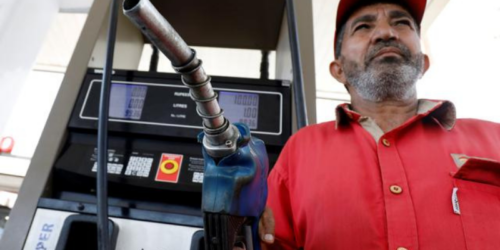The federal government drew the ire of its political rivals on Saturday after it raised the price of petrol by Rs10.49 per litre and that of high speed diesel (HSD) by Rs12.44 per litre.
According to a notification issued by the Finance Division, the new price of petrol, effective from Oct 16 (today), is Rs137.79 per litre while high speed diesel will sell for Rs134.48.
Meanwhile, the prices of kerosene and light diesel oil (LDO) were increased by Rs10.95 and Rs8.84 per litre respectively. The new price of kerosene is Rs110.26 per litre and that of LDO is Rs108.35 per litre.
This is perhaps the first time for which data is publicly available that all the four major petroleum products are being sold above Rs100 per litre in the country.
The notification stated that oil prices in the international market had risen around $85 a barrel which was the highest since October 2018.
“Importantly, entire energy chain prices have witnessed a strong surge in the past couple of months due to higher demand for energy inputs and supply bottlenecks,” it further stated.
The government had absorbed the pressure of increasing international rates and provided “maximum relief” to consumers by keeping the petroleum levy and sales tax to a minimum, the Finance Division said.
“Therefore, prices worked out by Ogra (Oil & Gas Regulatory Authority) have been approved,” it added.
It is pertinent to mention here that the government had raised the price of petrol by Rs4 per litre at the start of the month as well.
Govt took a hit of billions to ensure minimal burden passed on to public: minister
Minister of State for Information Farrukh Habib defended the price hike, saying it was still lower when compared to the international petroleum prices as he blamed global inflation caused by the Covid-19 pandemic.
“In the last 15 days, petroleum prices rose by 13.5pc globally but we have increased the rates by only 8pc,” the minister said in a media talk delivered in Faisalabad. “The difference was absorbed by the government. We chose to take a hit of billions on our revenue but ensured that the burden passed on the public of this hike was as low as possible.”
“Coal, through which electricity is generated and is used in a lot of our industries … it’s price has risen from $50 to $250. We import all of the edible oil. Its price has gone up from $500 to $1200 and $1300. This is extraordinary inflation that has taken place in the entire world.
“The circumstances have changed in the entire world due to coronavirus, which is why prices are going up all over the world.”
Habib cited a report by the Food and Agriculture Organization of the United Nations reportedly saying that it was the greatest surge in inflation since 1970.
He detailed the government’s plans to curb inflation and held the previous governments responsible for the energy crisis the current government is embroiled in.
Interior Minister Sheikh Rashid also addressed the price increase while speaking at a ceremony in Islamabad, saying that Pakistan was in the grip of a wave of increase in international oil rates.
“No ruler wants inflation […] a crisis in the world has come of [increase in] prices of oil, edible oil and wheat,” he said.
The interior minister attributed the price increases in Pakistan to higher prices in the international markets.
Price hike is ‘a calamity’ for people: Maryam
PML-N Vice President Maryam Nawaz lashed out at the price increase, calling it a “calamity” that had fallen on the people like a “lightning bolt”.
“When petrol and diesel become expensive then your electricity, wheat, bread, vegetables and everything become expensive,” she explained.





